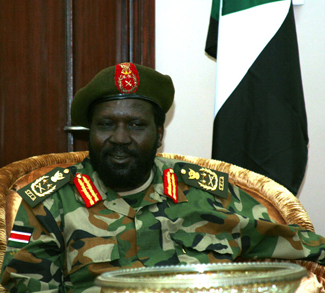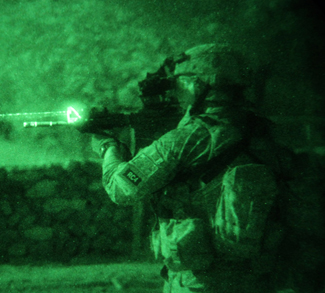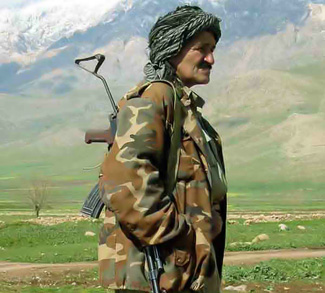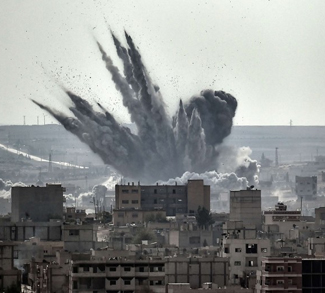Fighting has thus far been concentrated in the north, while the situation in the south seems much quieter. Tens of thousands of refugees have been fleeing the clashes. There have also been rumors of other regional players getting involved, though Uganda has denied having sent its soldiers to support the SPLM, saying that the Ugandan soldiers (UPDF) are in South Sudan to protect civilians and that there are many Ugandans in that area. Of course, this would fail to convince anyone who remembers that in the past, and during South Sudan’s struggle against Khartoum before independence, Uganda intervened on the side of the SPLM. Now, there is a military cooperation agreement signed by Uganda’s President Yoweri Museveni and Salva Kiir that could justify a more direct military contribution. Therefore, there is a very high risk that the South Sudanese civil war could engage other states, particularly as Sudan and Uganda appear directly involved already.
Even if a wider regional conflict might be avoided in the next year, Machar’s coup attempt has, regardless, laid bare the institutional fragility and precariousness of the ethnic balance of a country that seems to have lost all traces of the spirit of unity that had allowed it to gain independence from Khartoum. Power has corrupted unity as the various tribes have grown eager to assert their power at the local, national and even international level – considering Machar’s oil dealings with Khartoum – worsening an already dramatic humanitarian situation in the country, and diverting resources and manpower away from much-needed social and economic development efforts. The impact of this international crisis has already shown its potential to spread and to destabilize the region in central and eastern Africa.
Regional Implications
Ethnic tensions have characterized the country since independence, manifest in the competition for power between its two main ethnic groups: the Dinka (15 % of population) and the Nuer (5%). Both were initially united in their struggle against Khartoum, before becoming more and more engaged in an internal conflict for hegemony. In fact, from 2011, the Dinka have become more politically selfish, holding the most important ministries and managing oil proceeds in a ‘personal’ manner in favor of their ethnic group, marginalizing the Nuer and other minority groups in the country. This trend is reflected in President Salva Kiir’s growing authoritarianism. Kiir (a Dinka) expelled the representatives of other communities from any relevant public function, forcing resignations from ministers and military officers belonging to ethnic groups that were anything other than Dinka – including Machar and Gadet. The latter two figures have been central in mobilizing the Nuer community, leading the challenge to what they described as a ‘Dinka regime.’ The Dinka and Nuer have fought over the exploitation of South Sudan’s resources, from oil ownership to land rights for raising cattle.
The Nuer have also engaged in struggles with other tribes in a ‘divide and conquer’ strategy that can only have benefited the Dinka in Juba. Nevertheless, with a full blown civil war and with oil resources and proceeds moving to Machar’s Nuer in the north (with the related involvement from Khartoum), the central government has been stripped of its ability to offer even the minimum support for thousands of civilians, prompting flows of refugees toward neighboring countries and a humanitarian disaster. Naturally, such migrations rarely manage to avoid destabilizing consequences in such precarious countries as the Democratic Republic of Congo (DRC), Uganda, Sudan and the Central African Republic (CAR) – and to a lesser extent, Ethiopia. And if that weren’t enough, the CAR suffered its own destabilizing coup in 2013, featuring the proliferation of various ethnic militias. Just as with the coups and religious-ethnic divisions in Mali in 2012, the context of a weaker CAR and a weaker South Sudan is one that would facilitate the activities of criminal groups linked to arms, mineral, human and other trafficking.
These are the very sort of environmental factors that favor international terrorism such as al-Qaida, which has already found fertile ground in Somalia. As for Sudan, the flow of rebels could add to that country’s ongoing internal struggles and further weaken the government of Hassan al-Bashir (wanted by the International Criminal Court) in the southern regions. Since independence from Britain in 1956, Sudan has known very few years without war and the areas of conflict have always concerned South Kordofan, the Blue Nile region and the Abyei – the very same areas that remain at risk today. In 2003, the Darfur issue precipitated a wider conflict, which has led to some 400,000 deaths and over two million refugees. South Sudan has now formally become an independent state; the question remains how this new state will affect the regional balance.




